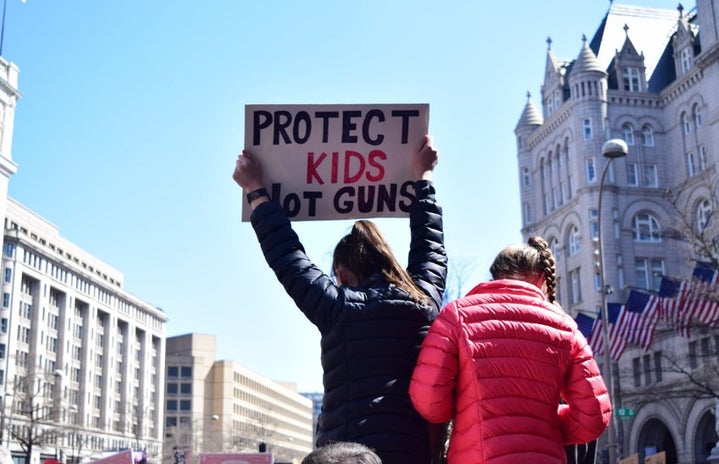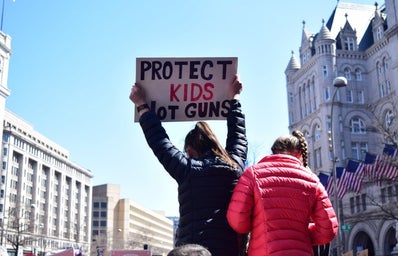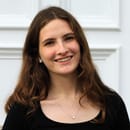Last Monday, I was on my way to a lecture when I had a few spare minutes. It was just after noon and I had stopped to grab a seat on a chair to wait. I opened my phone and the first headline I saw was something akin to this: “School shooter on the loose at the University of Virginia”. My heart stopped.
I’ve gotten this news before. I remember the exact moment I found out about the Uvalde shooting. This past May, I was driving home when I glanced at my phone to change the playlist. Twenty-one people died. My mom had texted with the news and it was two and a half hours from my house. I was thirteen when Parkland happened. I was sitting in school and it was Valentine’s Day. Seventeen people died. I spent my fourteenth birthday at the “March for Our Lives” walk to ask legislators to put more laws in place to protect us in school because it felt like there was nothing else we could do. I didn’t know at the time, but for Valentine’s Days in years to come my principals would come on the intercom and we’d have a moment of silence—Valentine’s chocolate has never tasted the same after that.
But I was almost conditioned when these happened. I knew what to expect, how it would go, and how little would actually change afterwards. One of my strongest memories from elementary school was my mom sitting me down on the front porch to try to explain Sandy Hook. This was the first time. I was eight. Twenty-eight people died, mostly kids around my age. My dad had passed away in an accident the year before so I wasn’t a stranger to death. But I still just didn’t get it. Who would want to hurt kids? And why did he get to? I spent hours on Google searching variations of “Why?” and couldn’t find the answers. By Parkland, I had learned to stop asking why.
But last week was different. Although I knew the usual stages that come after a shooting (numbness, shock, disbelief, intense sadness, anger), last week I felt something new—I felt worry heavy in my gut like a great stone. I felt like I was going to be sick. My best friend of thirteen years is a first year at UVA. This year was the first year we’d gone to different schools since we met. His name is Ford. Ford is outspoken and strong and persistent; he gets things done and knows what he wants. Ford is one of the people I’ve laughed the hardest with and is one of those people who can instantly make you feel special. Ford, like every incredible person in our lives, is irreplaceable.
But last week, Ford was at the same school as the shooter and because of the time difference, I couldn’t get a hold of him. I didn’t know if he wasn’t answering the phone because he was asleep or worse, and I no longer understand his location on Snap Maps like I used to. I drifted to my lecture but I couldn’t hear anything. Afterwards, an hour and a half later, I was finally able to get ahold of our mutual friend Carter who had spoken to Ford the previous night. Ford was okay. He hadn’t been able to leave his dorm for almost 12 hours at the time, because the gunman was still on the loose, but Ford was, and is, okay.
What I would learn in the coming days is the following: three football team members were killed in a bus coming back from a school trip with two others being injured. During a lull in the shooting, some students tried to perform CPR on their classmates and other students evacuated to the nearby drama building to hide in the bathroom to call 911. As the manhunt was conducted in search of the suspect, students across campus, students our age, received messages to “Run. Hide. Fight.” through the phone alert system. The three victims were Devin Chandler (a second year), D’Sean Perry (a fourth year), and Level Davis Jr. (a third year). A medical examiner determined they all passed away from a gunshot wound to the head.
One thing my mom said when I started to bring up the idea of going to school in Scotland was that maybe it was for the best—it will be safer for me there. But this is the reality of the situation: I will never escape the culture of mass shootings. This is what it means to be American.
Many of my British friends didn’t instantly understand this culture. When I said I was from Texas, they instantly started joking about “AR-15s” and the Second Amendment in what was, admittedly, not a terrible accent. It didn’t bother me that they did this, as I think the whole situation is absolutely ridiculous too, but I do think it can be easy to misunderstand what it is like to live in an environment where a school shooting is constantly a possibility. No matter where I was for the past few years, before coming to St Andrews, I was always thinking about what I would do if a shooter came into the room. Where I would hide, how I would move from where I was to the nearest exit. I was thinking this constantly, on a loop in the back of my head. In classes, in the library, sitting outside with friends. One year they attempted a safety measure that included requiring all of us students to constantly wear our ID cards around our necks on lanyards with the goal of preventing a shooter from blending in. At least once a semester, we’d have lockdown drills. A lockdown included turning off the lights, locking the door, closing any curtains, and huddling as small as you can behind the teacher’s desk or against the least exposed wall. It was so silent, you could hear every one of your classmates’ breaths. There were at least three times I can recall when a legitimate lockdown was carried out at my school on what was, luckily, a false alarm.
Some might think that this all sounds a bit paranoid. After all, what are the chances of this actually happening to you? Well, it could’ve happened to Ford. And it could’ve happened to me—a month before Parkland, I came home to find out the boy I’d been sitting next to in History class not an hour before had been caught with a gun in his backpack after class. It was not loaded, but it easily could’ve been. He’d brought it in to show it off to his friends.
Living in a society where this happens makes you acutely aware of your body’s vulnerability and fragility. It feels like you are a sitting duck on open water. This mindset doesn’t leave you. I have two little sisters still in high school and for them and my mom this is still an everyday reality, being sent off to school and not knowing if they will ever be back.
It’s heartbreaking that this is the way it is: that we’re constantly bracing for the next time this will happen, that nothing is really being done to prevent it, that it is so easy to buy a gun, that it doesn’t just happen in schools—music festivals, supermarkets, parades, clubs, anywhere is a risk. In fact, during the process of writing this article, another shooting occurred in Virginia. This one was in a Walmart and killed six.


